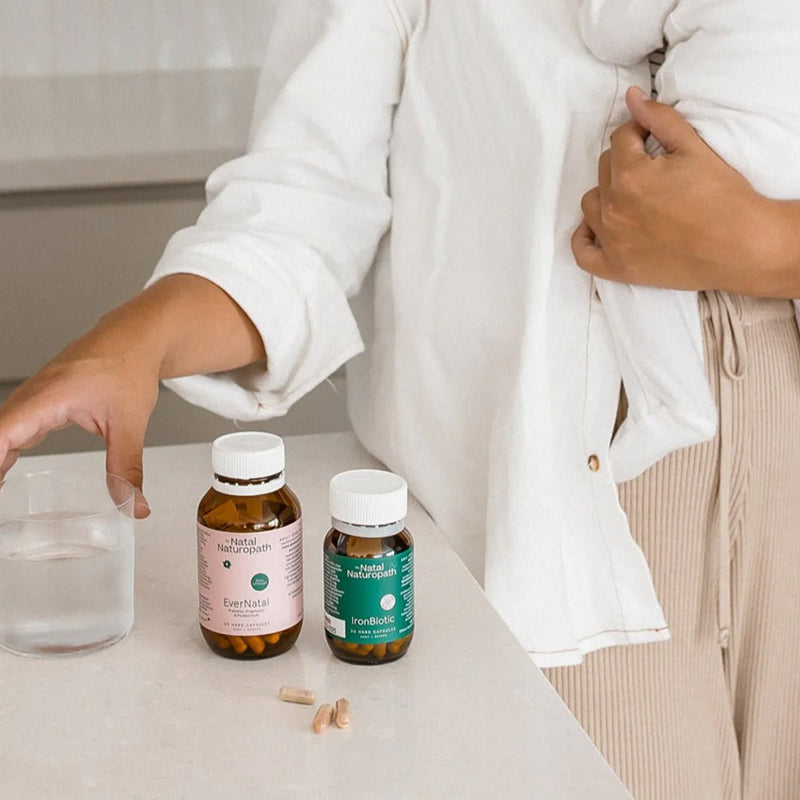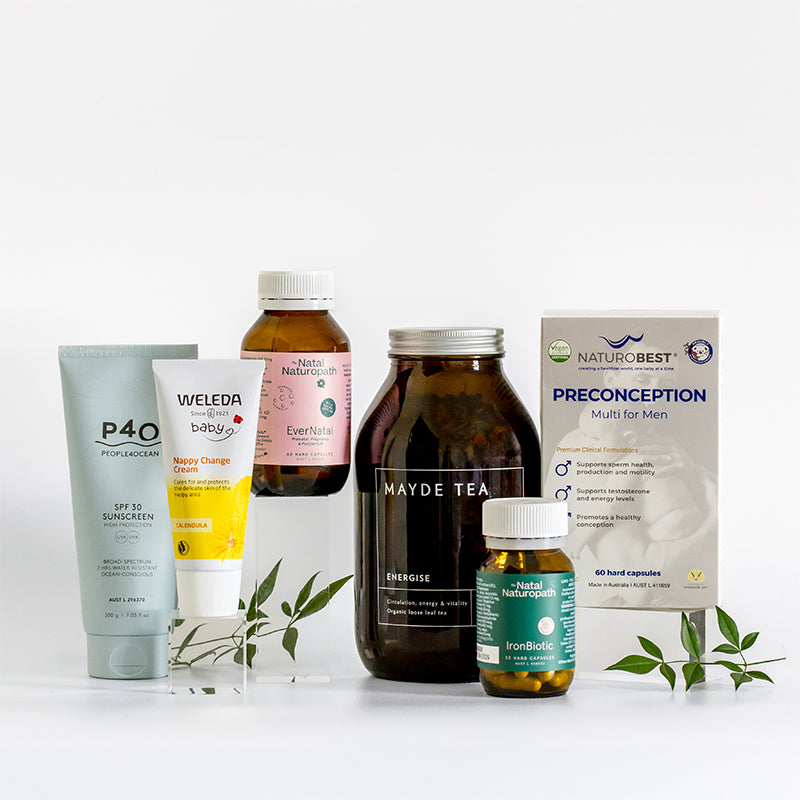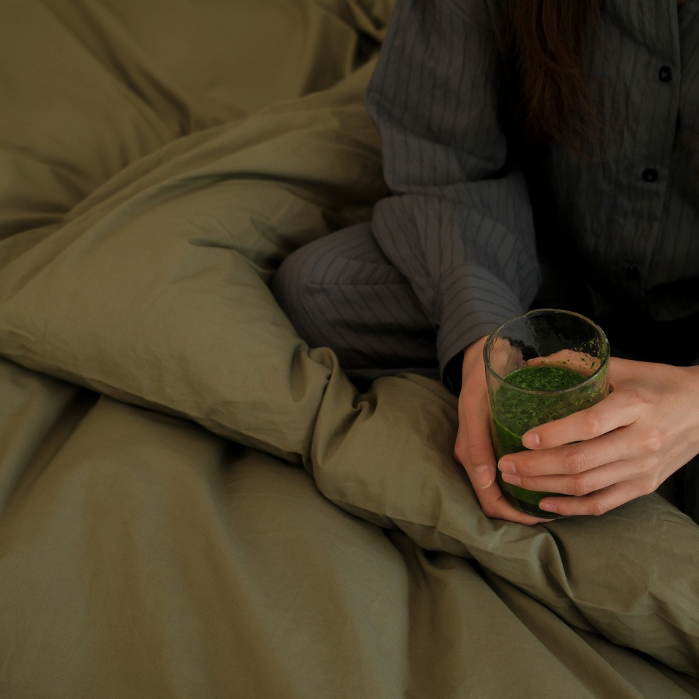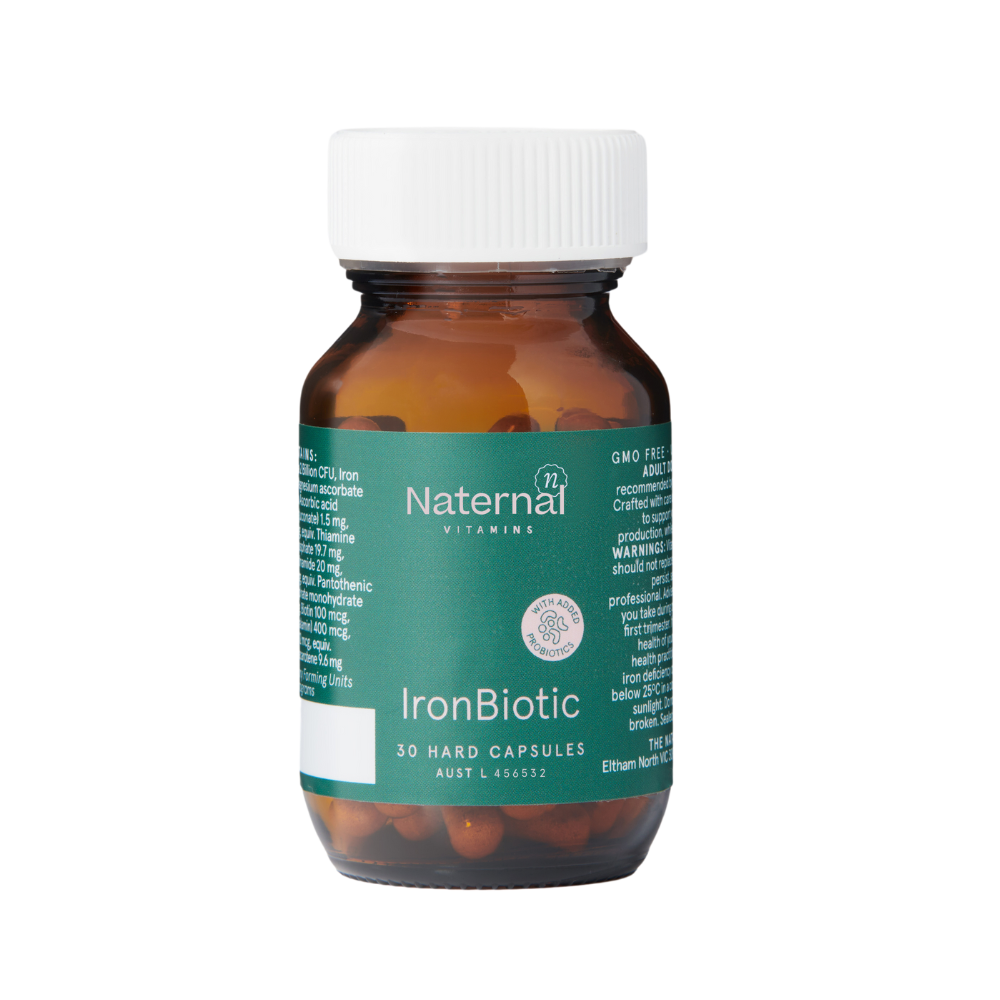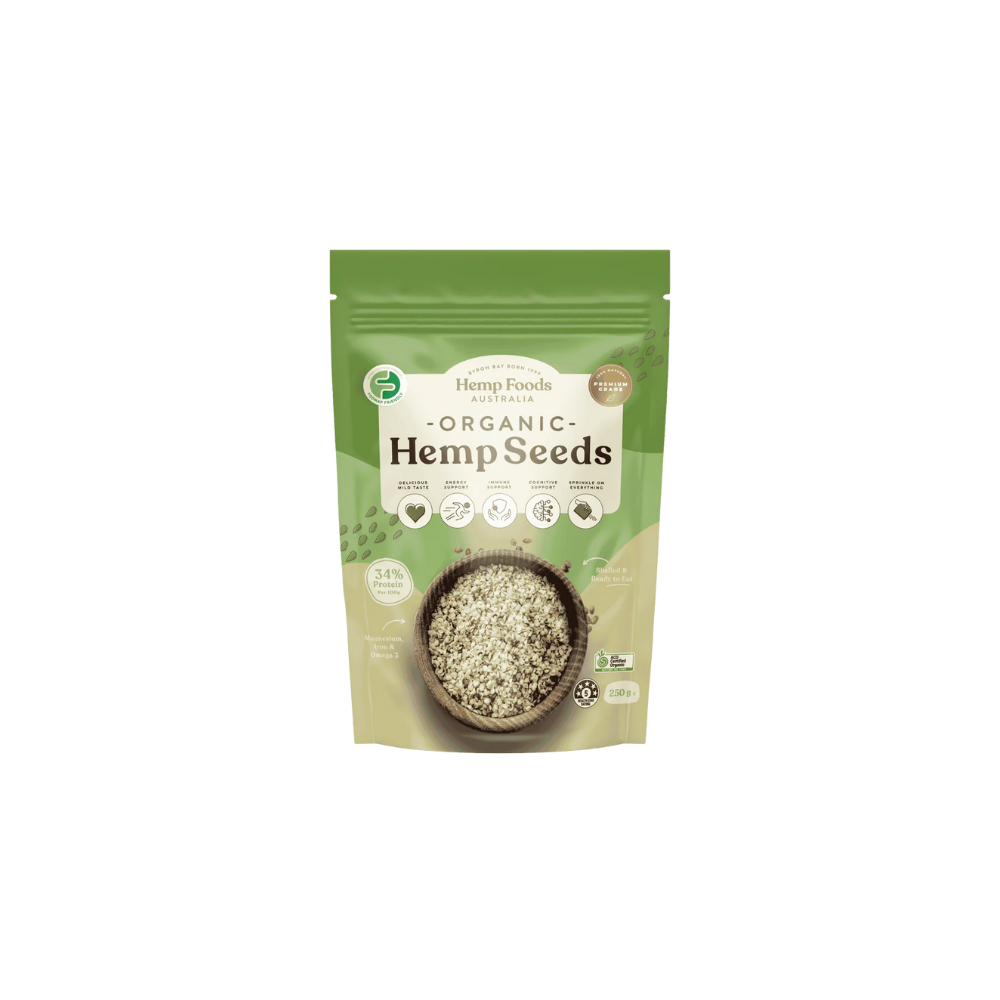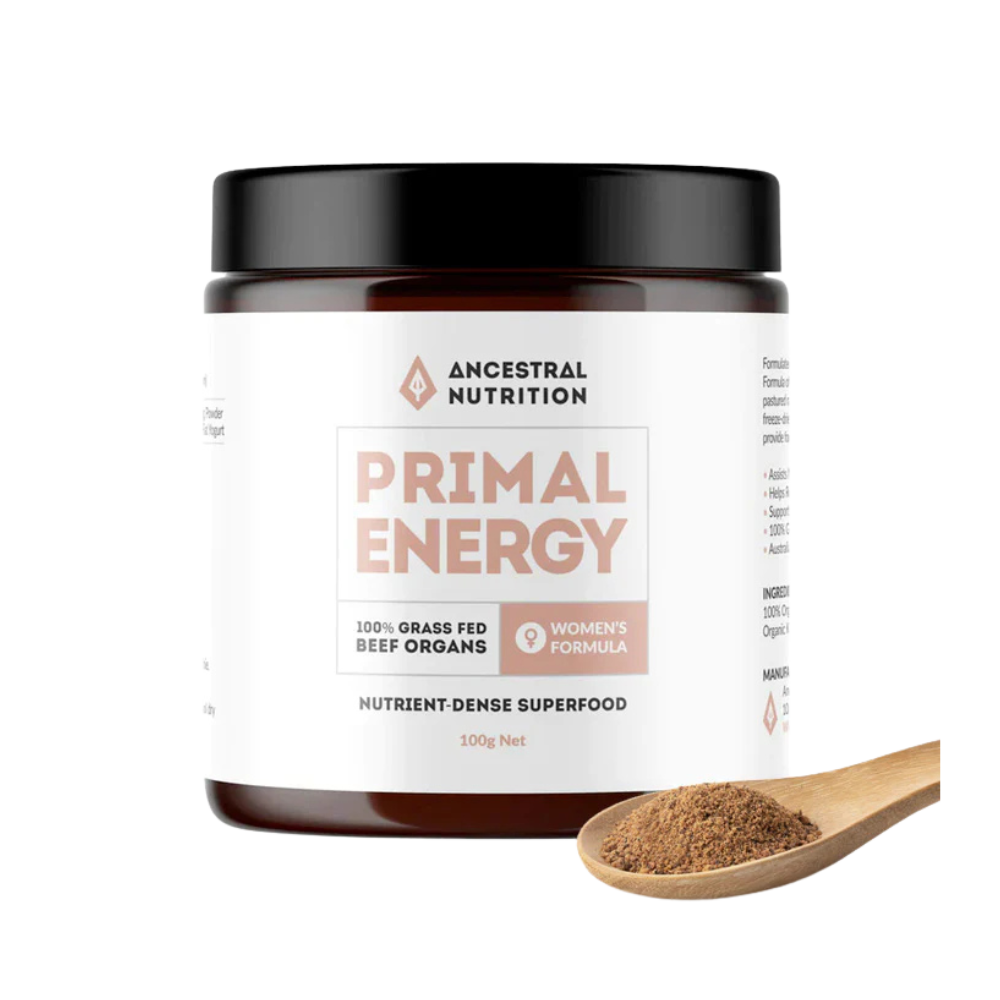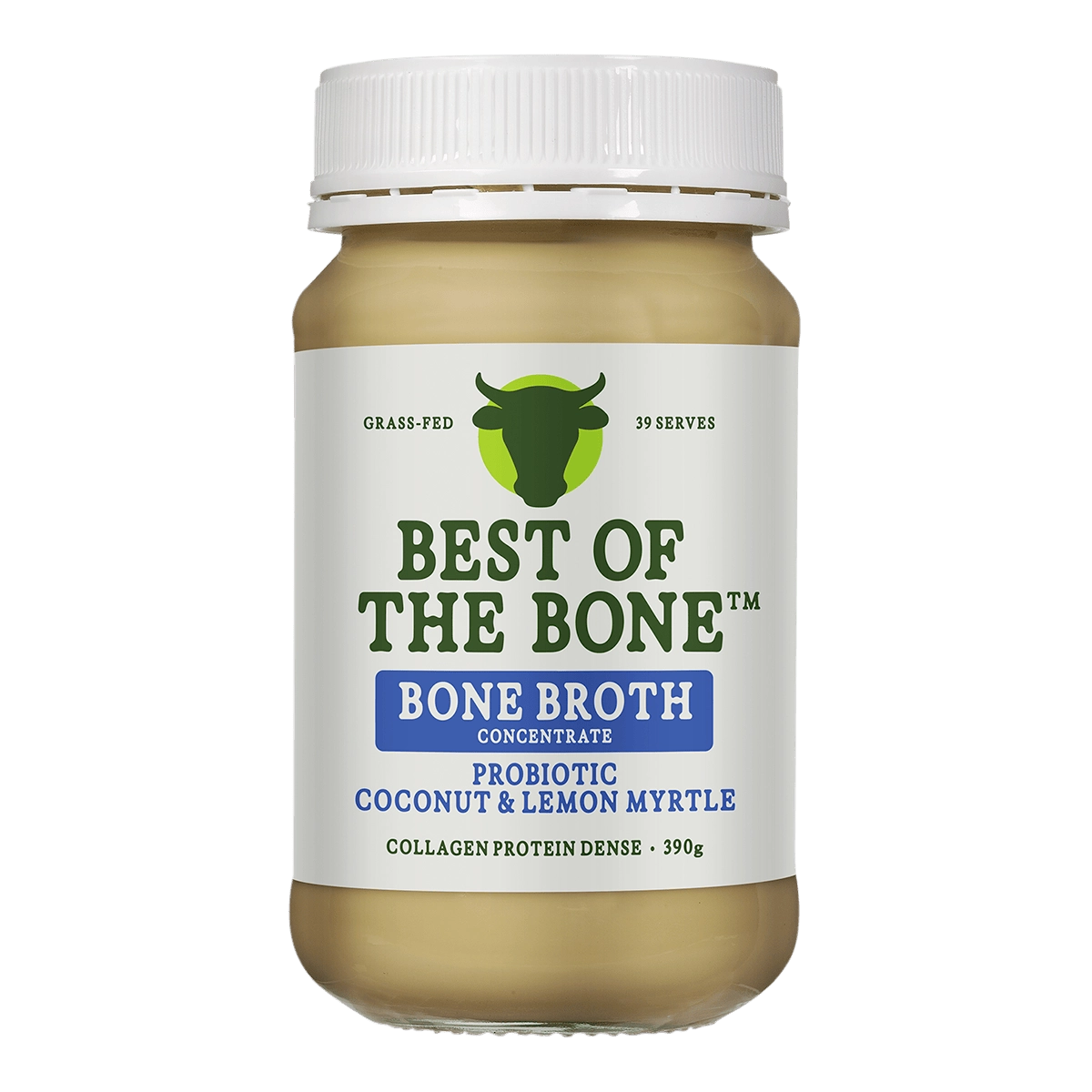If you've been feeling exhausted despite seemingly getting enough sleep, struggling with mood swings, or noticing changes in your skin and hair, there could be a crucial piece missing from your diet: iron.
For women navigating perimenopause and menopause, iron deficiency often flies under the radar, yet it plays a fundamental role in how we feel, look and function daily.
Why iron becomes critical during hormonal transitions
During perimenopause and menopause, several factors put women at greater risk of iron deficiency:
-
Heavier, irregular periods leading to increased iron loss
-
Decreased absorption due to hormonal changes affecting digestion
-
Increased demand as bodies work harder to maintain balance
-
Stress on the system from physical and emotional changes
The iron-hormone connection
Iron is intimately connected to hormone production:
-
Energy and thyroid function: Iron is essential for proper thyroid function. When iron is low, your thyroid can't work optimally, leading to fatigue, weight gain, and mood changes often blamed solely on menopause.
-
Mood regulation: Iron helps produce serotonin and dopamine; the neurotransmitters responsible for mood and wellbeing. Low iron can increase anxiety, depression, and irritability.
-
Sleep quality: Iron deficiency contributes to restless legs and disrupted sleep, compounding existing sleep issues during hormonal transitions.
-
Stress response: Your adrenal glands need iron to manage stress effectively. Iron deficiency compromises this ability, creating a cycle where stress further depletes iron stores.
Recognising the signs of iron deficiency
Iron deficiency develops gradually, with symptoms easily mistaken for normal ageing or menopause:
-
Persistent fatigue that doesn't improve with rest
-
Shortness of breath during normal activities
-
Cold hands and feet
-
Pale skin or under-eye circles
-
Hair loss or brittle nails
-
Increased irritability or mood swings
-
Brain fog or difficulty concentrating
-
Unusual cravings for ice or starch
The impact often shows in your appearance first. Iron deficiency affects your energy, but also your appearance, in dull or dry skin and hair loss. If you're noticing more hair in your brush, low iron could be the culprit.
Hidden iron thieves
Even with iron-rich foods, several midlife factors can sabotage iron levels:
-
Coffee and tea with meals reduce absorption by up to 60 per cent
-
Calcium supplements taken with iron block absorption
-
Digestive issues like low stomach acid (these can be common with age)
-
Medications including antacids and proton pump inhibitors
-
Chronic stress increases iron requirements while reducing absorption
Supporting iron levels, naturally
There are things you can do to increase your iron levels, like optimise your diet with iron-rich foods. Add red meat, legumes, dark leafy greens, and pumpkin seeds to your weekly rotation or if you want to explore nutrient-dense options, discover how embracing organ meats for optimal health can provide some of the highest concentrations of bioavailable iron available.
For high-performing plant-based sources of iron; hemp seeds are an excellent addition to your iron-boosting arsenal, providing not only iron but also essential fatty acids and protein to support overall wellness.
Enhance absorption by pairing iron-rich foods with vitamin C-rich foods like citrus fruits and capsicums.
If you’re eating well, consider adding considered supplementation, if dietary changes aren't enough, IronBiotic offers a gentle, effective solution that's easy on your digestive system while providing bioavailable iron.
Addressing your iron intake can help with digestive health, heavy periods, chronic inflammation, and thyroid function.
For detailed strategies on naturally supporting your iron levels, explore our detailed guide on 5 natural tips to boost iron levels, which provides practical, evidence-based approaches to optimising your iron status.
When to seek professional help
Work with a healthcare practitioner to confirm iron deficiency through proper testing, rule out underlying conditions, and determine appropriate supplementation.
At Nourishing Apothecary, our practitioners understand the complex iron-hormone relationship. Jaime Chew, our founder and expert Naturopath, specialises in women's hormonal health and can help identify whether iron deficiency is contributing to your symptoms.
Reclaim your vitality
Understanding the iron-hormone connection is the beginning of your wellness journey. Don't dismiss persistent fatigue and mood changes as inevitable parts of ageing or menopause.
Ready to explore how iron levels might be affecting your energy and mood? Book a discovery call with our experienced practitioners. We'll help uncover the root causes of your symptoms and create a personalised plan to restore your natural balance.
You don't have to accept fatigue and mood changes as inevitable. With the right support and understanding of your body's needs, you can feel energised, balanced, and like yourself again.

